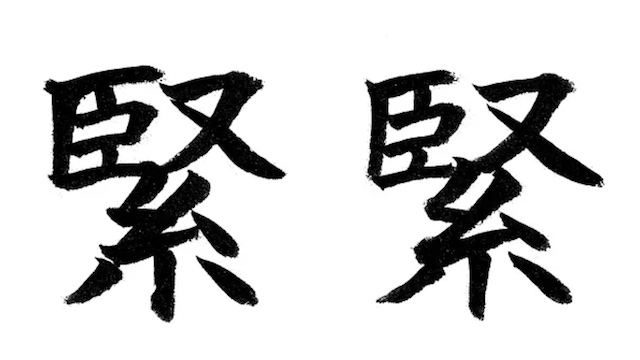TOKYO, Feb 03 (News On Japan) - Dengeki Online's serialized feature "Difficult-to-Read Kanji" challenges readers with a range of characters, from those so complex they're almost unimaginable, to seemingly simple ones that are surprisingly tricky to pronounce. The project is spearheaded by "Kyōji Yanagi," a humble calligrapher who lives with his cat. He'll continue to introduce kanji that might not be instantly readable, so let's all think about them together!

To read other difficult kanji, today's challenge is... The featured kanji for this installment is "緊緊." It's a character used in words like "emergency (緊急)," but of course, it's not read as "kinkin." The hint is ○shi○shi. Now, how should it be read?
The answer is "hishihishi!" It conveys various meanings such as a strong, pressing sensation, a state without gaps, a sound made under pressure, relentlessness, or persistently continuing an action. Indeed, if you're in a tense situation, you might want to say "緊緊."... Although it's more commonly used in hiragana, let's take this opportunity to remember it!
Source: Dengeki















